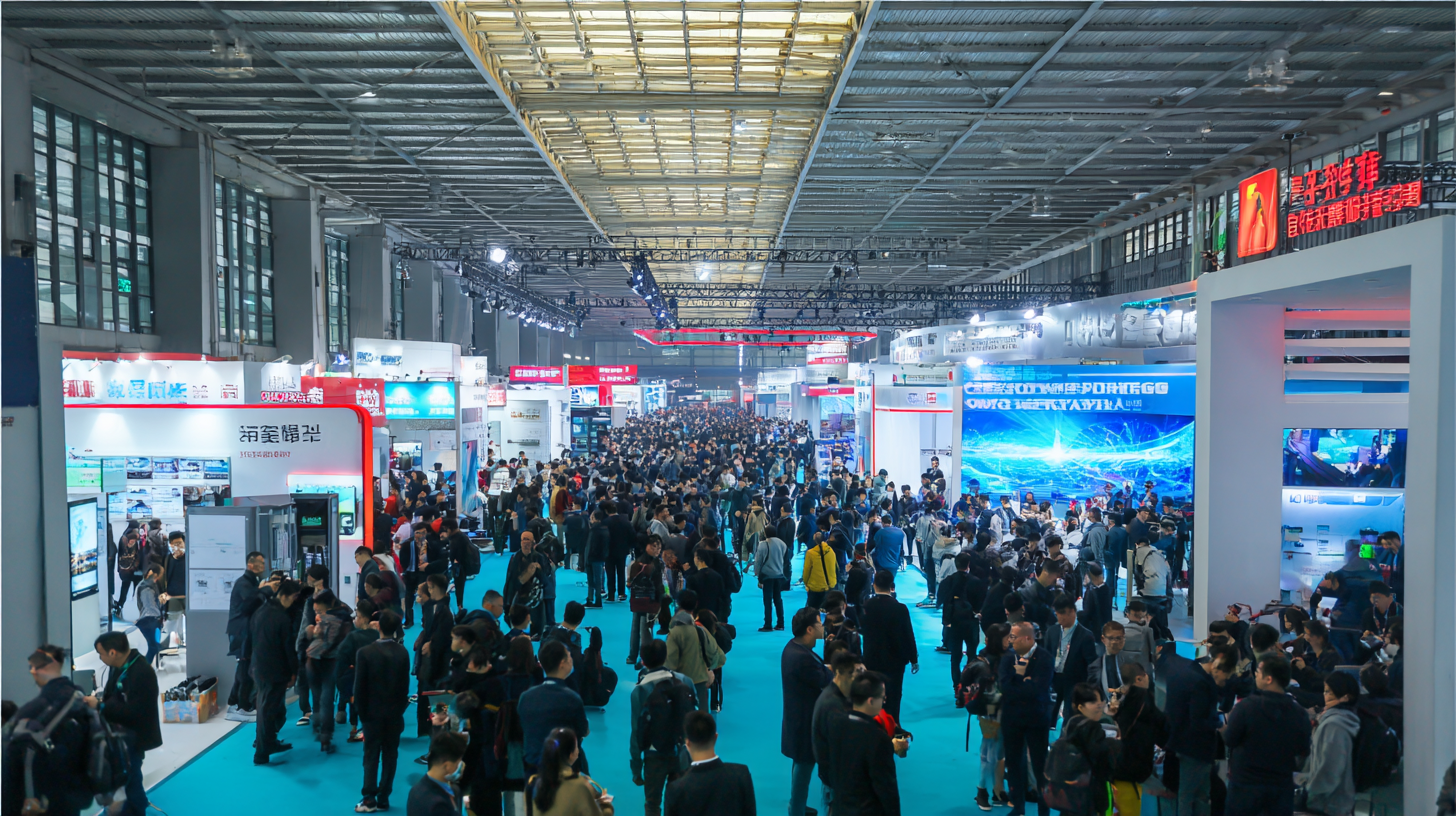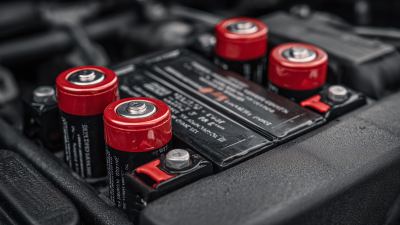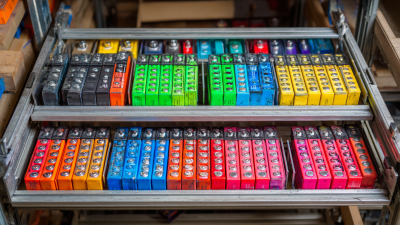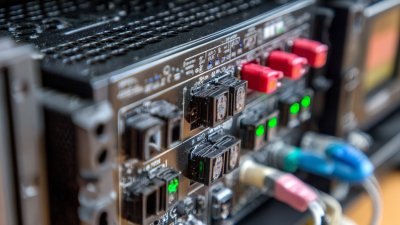Exploring Battery Service Innovations at the 138th Canton Fair 2025: Industry Trends and Insights
As the global transition towards renewable energy accelerates, the demand for innovative battery service has reached unprecedented heights. According to the recent report by MarketsandMarkets, the global battery services market is projected to grow from USD 8.96 billion in 2022 to USD 17.14 billion by 2027, reflecting a CAGR of 14.5%. This trend is particularly evident at the 138th Canton Fair in 2025, where industry leaders converge to showcase advancements in battery technology and service solutions. The Fair serves as a pivotal platform for exploring cutting-edge innovations, engaging stakeholders, and discussing emerging trends in the battery service sector. With the ever-increasing reliance on electric vehicles and renewable energy sources, the importance of efficient and reliable battery service cannot be overstated. Attendees will have the opportunity to delve into new developments, best practices, and strategic insights that are shaping the future of energy storage and management.

Battery Service Innovations Showcased at the 138th Canton Fair 2025
The 138th Canton Fair 2025 serves as a vital platform for showcasing groundbreaking battery service innovations that are set to redefine the industry landscape. Exhibitors are presenting a range of advanced solutions, such as automated battery swapping systems and smart energy management tools. These innovations promise to enhance efficiency, reduce downtime, and cater to the growing demands of both consumers and businesses in various sectors, including electric vehicles and renewable energy storage.
In addition to technological advancements, sustainability has taken center stage at the fair. Many companies emphasize eco-friendly service models that not only improve performance but also align with global environmental goals. Innovations such as battery recycling services and circular economy initiatives indicate a shift towards more responsible practices in battery manufacturing and disposal. As industry leaders gather at the Canton Fair, the focus remains on collaborative efforts to advance battery technology while prioritizing sustainability and service excellence.
Emerging Battery Technologies and Their Impact on Industry Growth
At the 138th Canton Fair in 2025, the spotlight on emerging battery technologies underscores their significant role in shaping industry growth. As sustainability becomes a key focus globally, innovations such as solid-state batteries, lithium-sulfur batteries, and advanced energy storage solutions are paving the way for more efficient and reliable power sources. These technologies promise longer life cycles, enhanced safety, and higher energy densities, setting new standards for performance across various applications, from electric vehicles to renewable energy storage systems.

The introduction of smart battery management systems also plays a crucial role in revolutionizing the battery industry. Utilizing artificial intelligence and machine learning, these systems optimize battery performance and prolong their lifespan by dynamically adjusting charging patterns and predicting maintenance needs. Additionally, the integration of recycling processes within the production lifecycle presents a dual benefit: addressing environmental concerns and managing resource scarcity. As these emerging technologies gather momentum, they are expected to elevate industry standards, facilitating a transition to greener and more sustainable energy solutions.
Key Industry Players and Their Contributions to Battery Innovations
At the 138th Canton Fair in 2025, significant developments in battery service innovations are poised to reshape the industry landscape. Key players in the sector are focusing on enhancing battery performance, safety, and sustainability. The increasing demand for clean energy solutions has driven these companies to invest heavily in research and development, leading to breakthroughs in battery technologies. Notably, advancements in lithium-ion and solid-state batteries are emerging as game-changers, promising higher energy densities and improved charging times.
Industry leaders are also collaborating with various stakeholders to address challenges and leverage opportunities within the market. These collaborations are crucial for fostering innovation and ensuring that new technologies align with environmental goals. The fair presents a unique platform for these companies to showcase their contributions, reveal cutting-edge research, and engage with potential partners. As the global emphasis on green technologies intensifies, the contributions of key industry players at the Canton Fair will be instrumental in driving the transition toward an electrified, sustainable future.
Exploring Battery Service Innovations at the 138th Canton Fair 2025: Industry Trends and Insights
| Company Type | Technology Focus | Key Innovations | Sustainability Efforts | Market Impact |
|---|---|---|---|---|
| Manufacturer | Solid-State Batteries | Higher density, shorter charging times | Recycling initiatives, reducing CO2 emissions | Gained 15% market share |
| Startup | Graphene Batteries | Faster discharge rates, longer lifespan | Energy-efficient production processes | Appealing to tech-savvy consumers |
| Research Institution | Lithium-Ion Advancements | Lower costs, increased safety | Commitment to biodegradable materials | Potential for 20% cost reduction in production |
| Supplier | Battery Management Systems (BMS) | Smart charging, efficiency tracking | Integration of AI for predictive maintenance | Enhanced user experience and satisfaction |
| Consumer Electronics | Portable Energy Storage | Lightweight, high-capacity solutions | Focus on recyclable materials | Increased adoption in outdoor and travel markets |
Sustainability Trends in Battery Manufacturing and Recycling
The sustainability trends in battery manufacturing and recycling are gaining momentum as the industry seeks to address the dual challenge of increasing demand for battery raw materials and the imperative for emissions reductions. With research indicating that the global lithium-ion battery recycling capacity needs to surge by a factor of 50 over the next decade, we are at a critical juncture where circular economy principles must be integrated into production processes. For instance, the adoption of closed-loop systems by some manufacturers highlights a proactive approach to recovering valuable materials from retired batteries, which is essential in fostering sustainability.
Furthermore, insights from the increasing reliance on lithium iron phosphate (LFP) batteries in electric vehicles (EVs) underscore the potential for significant growth in recycling markets. A recent report indicates that the expanding EV market and the growing penetration of LFP batteries are driving demand for innovative recycling solutions. As companies strategize for carbon neutrality, advances in recycling technologies and regulatory support are pivotal. Collectively, these trends point toward a robust framework for sustainable battery lifecycle management, balancing economic viability with environmental responsibility.
Future Outlook: The Role of Smart Technologies in Battery Services
As the 138th Canton Fair 2025 approaches, the spotlight on battery service innovations emphasizes the critical role of smart technologies in reshaping the industry. According to a recent report by Allied Market Research, the global battery management system market is projected to reach $30.1 billion by 2026, growing at a CAGR of 25.1% from 2019. This growth is heavily attributed to advancements in smart technologies, which enhance the efficiency and sustainability of battery services across various sectors, including automotive, consumer electronics, and renewable energy.

The integration of Internet of Things (IoT) devices and artificial intelligence (AI) into battery management not only optimizes charging cycles but also extends the lifecycle of batteries through predictive analytics. A survey conducted by MarketsandMarkets indicates that nearly 64% of organizations planning to invest in smart battery solutions cite enhanced operational efficiency as a primary motivator. This demonstrates a significant shift towards data-driven decision-making in battery service management, ensuring that businesses remain competitive in an increasingly technological landscape. By leveraging smart technologies, companies can not only improve service quality but also contribute to a more sustainable and environmentally-friendly future.




